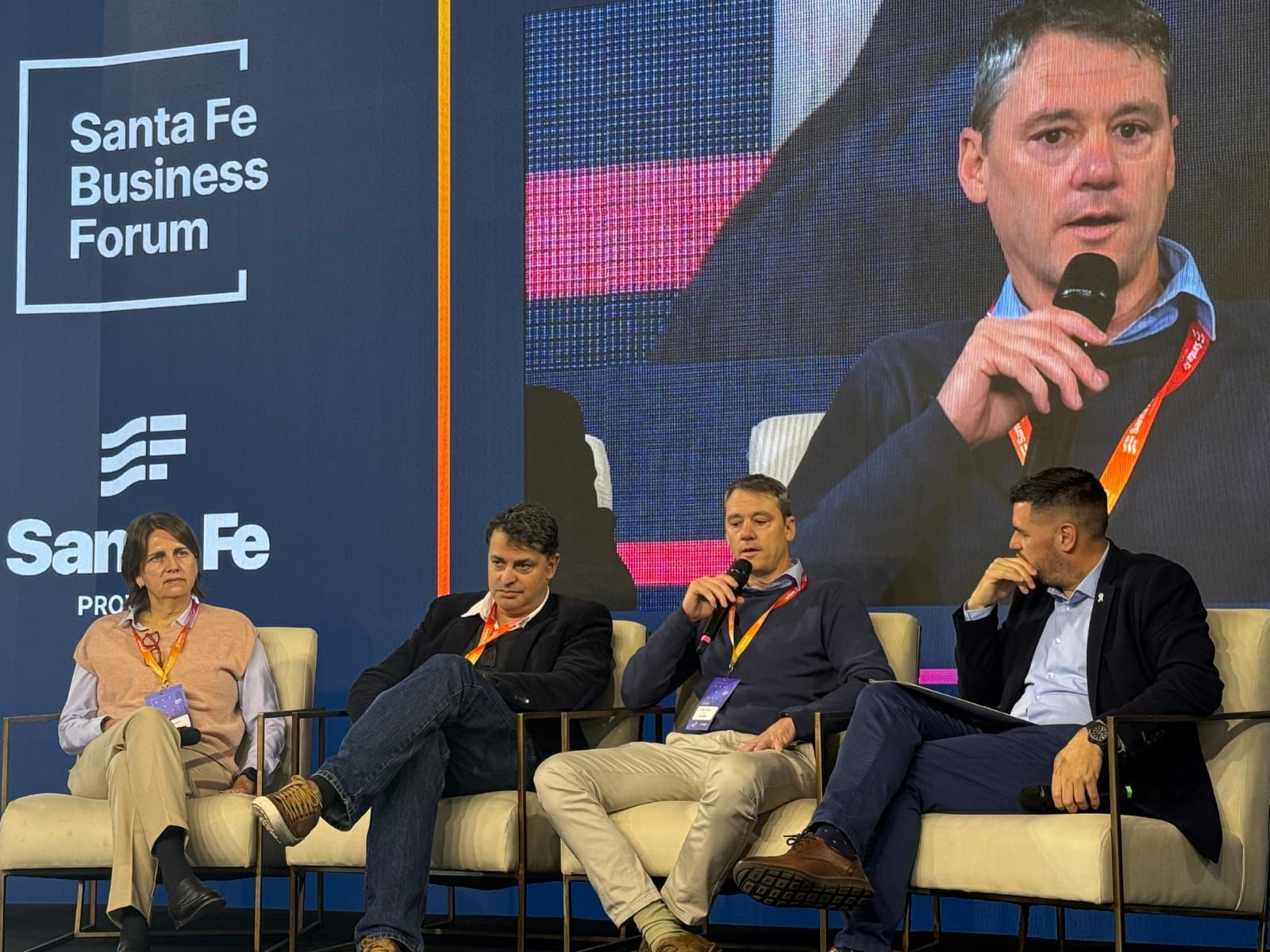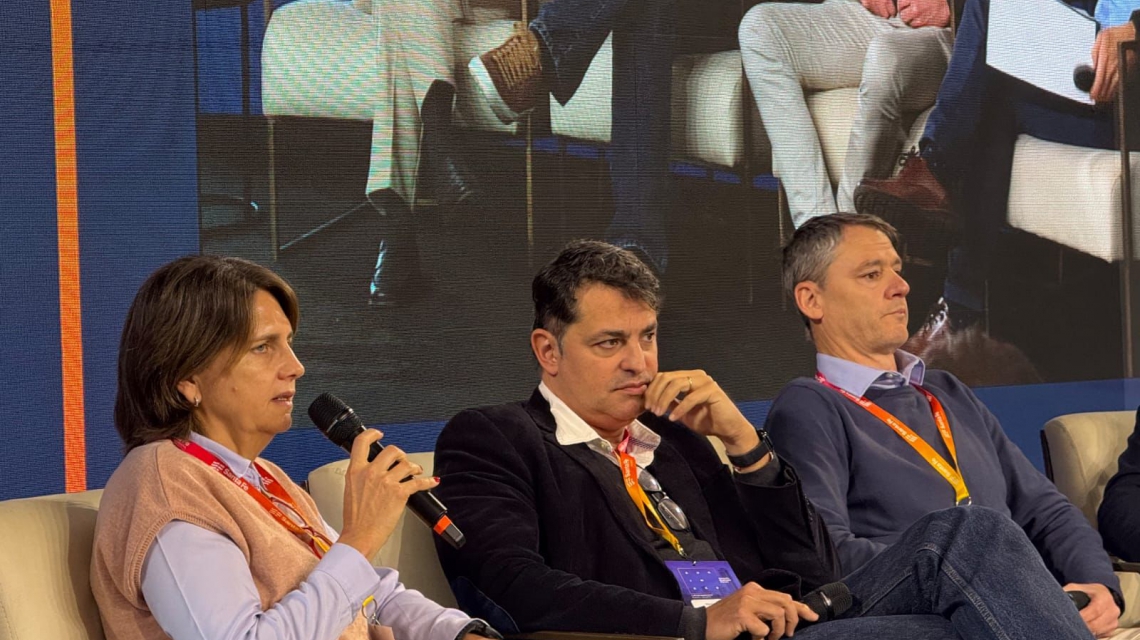The second edition of the Santa Fe Business Forum featured the panel "From the lab to the market: opportunities in biotech and health", with the participation of Marina Simian (Oncoliq), Marcelo Kaufmann (Limay Biosciences) and Diego Chouhy (Detx Mol). The activity was moderated by Emiliano Melero, Undersecretary of Medicines and Health Technology of the Ministry of Health of Santa Fe, with provincial authorities present.
Melero said that the panel allowed "to learn about the incorporation of new technologies, the importance of quality and regulatory frameworks, and the link that these companies have with the different health sectors to provide innovative solutions". In closing, he stressed that the three firms agreed that quality is the path to efficiency without neglecting regulatory issues and said that in Santa Fe there is "a will to continue, strengthen and boost technological development, maintaining a very high standard, recognised nationally and internationally".
Innovation with an impact on health

Simian said that Oncoliq was born in Buenos Aires in 2021, after seven years of research at the Conicet together with Adriana De Siervi. The company is developing an early detection test for breast and prostate cancer based on microRNA panels and machine learning. Oncoliq Breast will be the first product available at the end of the year, especially useful in rural areas with less access to imaging studies,' she said.
The researcher stressed that Santa Fe "has proven to be a key player in driving innovation". She also considered that it would be necessary to unify regulatory criteria in the early stages, simplify procedures and promote biotechnology companies, which, she said, have talent and ideas capable of being transformed into market solutions.
Scaling up with quality
Chouhy shared the experience of Detx Mol, which grew out of research at the Institute of Molecular and Cellular Biology of Rosario (Conicet/UNR) at the end of the 20th century. The company was formally incorporated shortly before the pandemic and two years later had already developed Covid diagnostic kits, which were transferred to Wiener Lab.
Today, the firm has a production capacity of five million tests per year and innovative products, such as a preservative liquid that keeps DNA and RNA at room temperature. Some of these developments are in the process of being approved by Anmat. "We are one of the few companies in the diagnostics sector that have achieved specific quality certifications, which ensures our development and production processes," said Chouhy, who also highlighted the interaction with public and private institutions and the support of the Santafesina Agency for Science, Technology and Innovation in the purchase of equipment.
Democratising diagnosis
Kaufmann reviewed the trajectory of Limay Biosciences, founded five years ago in Buenos Aires by Conicet research groups. He explained that the company's goal is to democratise access to molecular diagnostic platforms through low-cost equipment for low-complexity laboratories.
Among its recent advances, he highlighted a rapid test for molecular diagnosis of dengue, approved by Anmat, which offers results in less than an hour and was validated together with the Hospital Centenario de Rosario. In his presentation, he said that "in markets as regulated as the diagnostics market, the key is open doors, communication, trust building and process monitoring". He added that Santa Fe provided "a space to work with quality and efficiency".
The businessman also insisted on the importance of sustained policies. He argued that, beyond initial funding, continuity is required in investment programmes and recognition of the sector. "If a product is of public interest, the state should be the first to facilitate its development," he said. He concluded that, in Santa Fe, state support and clear rules have contributed to the consolidation of these projects.
